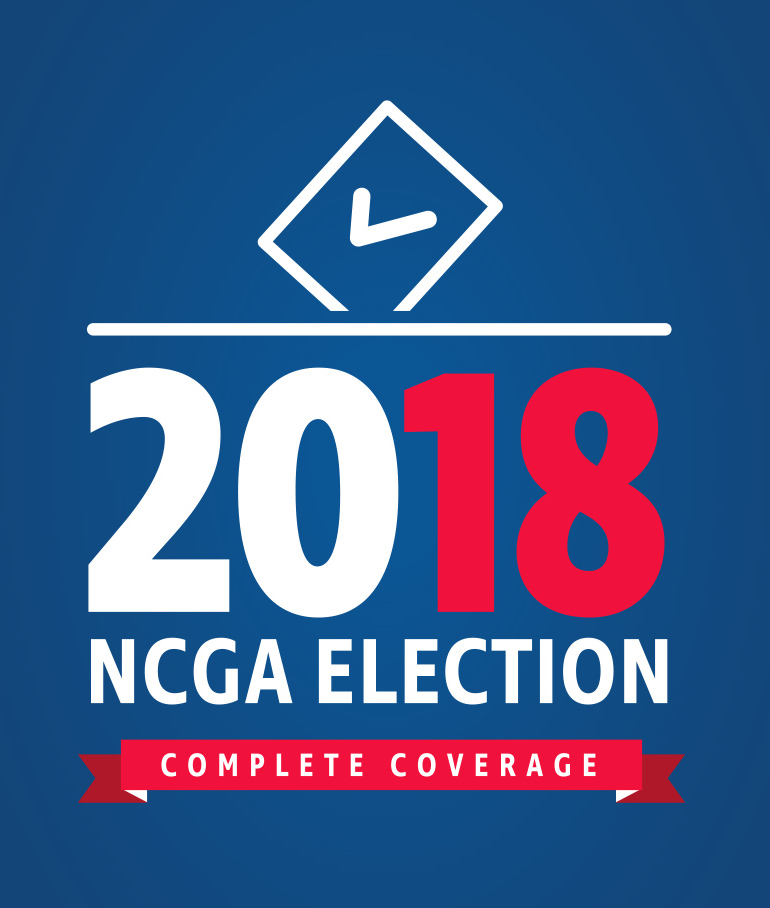 Senate District 19 (Cumberland County).
Senate District 19 (Cumberland County).
• Wesley Meredith, Republican (four-term incumbent). Occupation: Small business owner. Education: Fayetteville Technical Community College, associate’s degree in horticulture technology and management. Career Highlights: General Assembly Republican Majority Whip. Former Fayetteville City Councilman including two years as mayor pro tem. Decorated Army veteran.
• Kirk DeViere, Democrat. Occupation: Small business owner. Education: Huntingdon College, bachelor’s degree in business administration. Troy State University, master’s degree in business management. Career Highlights: Fayetteville State University Board of Trustees. Former Fayetteville City Councilman. Former chairman of Fayetteville Chamber of Commerce. Former Army infantry officer.
In many respects, the backgrounds of incumbent Republican Sen. Wesley Meredith and Democratic challenger Kirk DeViere are similar. But the candidates are emphasizing their differences in the race for the Senate District 19 seat Meredith has held for four terms.
Both were born in other states — Meredith in Mississippi, and DeViere in Florida. Meredith is a former Army sergeant. DeViere is a former Army infantry officer. Meredith has owned his own business, Cardinal Landscaping, for 20 years. DeViere owns his own marketing and advertising firm, 219 Group. Meredith served on Fayetteville City Council for five years. DeViere has been on council since 2015.
But they diverge on policy and methods, each sticking close to their own party’s playbook.
This is the first general election since the shape of the district was redrawn in 2017 as a result of a federal lawsuit that challenged 28 legislative districts as racial gerrymanders. The new map rounded off and pushed the boundaries for Senate District 21 slightly west and farther north, leaving more Democratic voters in the 19th district.
Prior to this year Meredith successively widened his re-election margins of victory, reaching 13 percent in 2016. But some say remapping created a swing district, or even a district that leans left. The N.C. FreeEnterprise Foundation, which closely tracks state elections and voter behavior patterns, rates it competitive.
Democrats hope to flip the seat in their favor in efforts to end Senate Republicans’ 35-15 veto-proof supermajority. They need to pick up six seats to do that.
Neither candidate responded to numerous attempts to reach them via email, phone, and/or text. But their campaign websites, Facebook pages, and other online tools give a clear picture of their positions.
Meredith first ran for Senate because the state had the highest corporate, personal income, and gas tax rates in the Southeast. Businesses were shutting down, and new businesses were “scared away.”
As a legislator, he was actively involved in instituting the reforms that pushed North Carolina into Top 10 business climate analyses.
Meredith thinks the role of government in a strong economy is not to impede capitalism and market forces. He would like the state to continue to lower taxes, and do away with regulations that squelch innovation. He says bailouts and government takeovers may be well-intended, but only serve to weaken the economy.
“Raising taxes had long been the way to govern for a state under Democrat control for over 100 years,” Meredith said on his campaign website.
To change that, when he first ran for office he made a promise to identify and eliminate government excesses. He said he continues that process to this day.
“I have always voted against every tax increase, and will continue to do so,” he said.
On the website On Your Ballot DeViere said he is running for office because “In the current political climate, I had to take a stand and fight for my country and state again.”
DeViere sides with fellow Democrats on several core issues — expanding Medicaid, holding industrial polluters accountable while working to prevent hazardous mishaps in the first place, and making quality preschool programs accessible to everyone. He is especially interested in removing roadblocks from populations historically left behind socially and economically.
DeViere diverges from many politicians by opposing corporate incentives as an economic development tool. He says the key to attracting meaningful employment and comfortable wages is education and workforce training.
DeViere has called economic development incentives a Republican mistake, saying, “We need to end the giveaways to millionaires and out-of-state corporations.”
He supports an Equal Rights Amendment, taking care of veterans, paying “family-supported” or living wages, restoring the sales tax holiday, and requiring universal background checks to curb gun violence. He opposes offshore drilling.
DeViere would increase spending on education, including teacher pay. His website states, “North Carolina schools used to lead the nation, but Raleigh Republicans have allowed funding to dry up.”
Meredith defends the education priorities the General Assembly has undertaken. He told the Fayetteville Observer, “We have increased funding for public education by more than $1 billion, and continued significant education reforms to reduce class sizes and ensure students receive the tools they need to succeed. This compensation increase is the largest in the history of the state.”